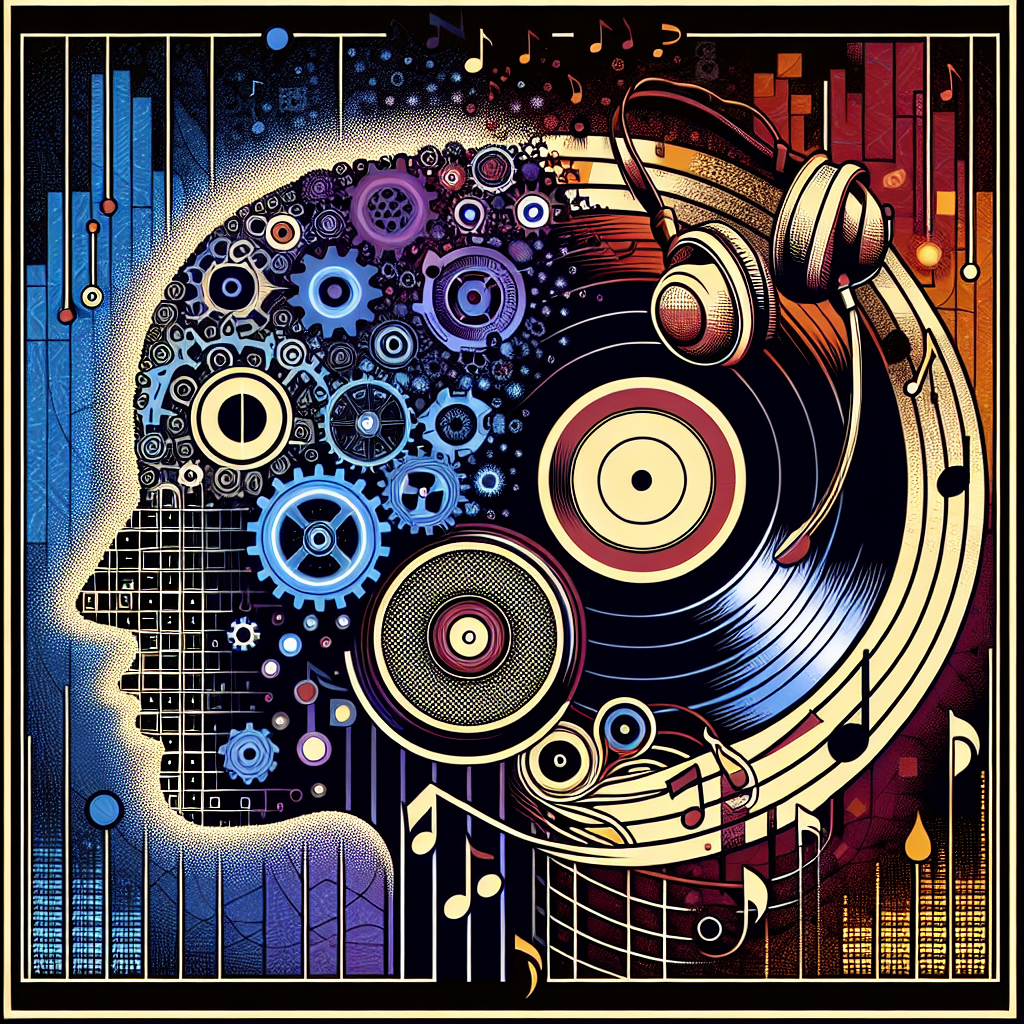The Influence of AI on Music Taste
In recent years, Artificial Intelligence (AI) has made significant advancements in various industries, including the music industry. AI technologies are now being used to recommend music to listeners based on their preferences, analyze trends in music consumption, and even create original music. As a result, AI has had a profound impact on how people discover, listen to, and interact with music.
One of the most notable ways in which AI has influenced music taste is through personalized music recommendations. Streaming platforms like Spotify, Apple Music, and Pandora use algorithms that analyze a user’s listening habits and preferences to suggest new songs and artists that they may enjoy. These recommendations are based on a variety of factors, such as the user’s listening history, genre preferences, and even the time of day or mood they are in.
By leveraging AI technology, these platforms are able to provide users with a more tailored music experience, helping them discover new music that aligns with their tastes. This has led to a more diverse and eclectic music consumption landscape, as listeners are exposed to a wider range of artists and genres that they may not have discovered otherwise.
AI has also played a role in analyzing trends in music consumption and predicting future hits. By analyzing data from streaming platforms, social media, and other sources, AI algorithms can identify patterns and trends in how music is being consumed and shared. This information can be used by record labels, artists, and music promoters to make informed decisions about marketing strategies, tour planning, and even songwriting.
Some AI-powered tools, such as Amper Music and Jukedeck, are even capable of creating original music compositions. These tools use algorithms to generate music based on a set of parameters, such as genre, tempo, and mood. While these AI-generated compositions may not have the same emotional depth or creativity as music created by human composers, they can still be used in a variety of applications, such as background music for videos, commercials, and video games.
Despite the many benefits that AI has brought to the music industry, there are also concerns about the impact of AI on music taste. Critics argue that the use of algorithms to recommend music may lead to a homogenization of music tastes, as listeners are only exposed to music that fits within their existing preferences. This could limit the diversity of music that is consumed and prevent listeners from discovering new genres or artists that they may enjoy.
There are also concerns about the role of AI in the creation of music. Some fear that AI-generated music may lack the emotional depth and creativity of music created by human composers, leading to a decline in the quality and authenticity of music. Additionally, there are ethical concerns about the use of AI in the music industry, such as issues of copyright infringement and the potential for AI to replace human musicians and composers.
Despite these concerns, the influence of AI on music taste is likely to continue to grow in the coming years. As AI technologies become more advanced and widespread, they will play an increasingly important role in how music is discovered, consumed, and created. By leveraging the power of AI, the music industry has the potential to reach new audiences, create innovative music experiences, and push the boundaries of what is possible in music production.
FAQs
Q: How does AI recommend music to listeners?
A: AI algorithms analyze a user’s listening habits and preferences to suggest new songs and artists that they may enjoy. These recommendations are based on factors such as the user’s listening history, genre preferences, and even the time of day or mood they are in.
Q: Can AI predict future hits in music?
A: Yes, AI algorithms can analyze trends in music consumption and predict future hits by identifying patterns and trends in how music is being consumed and shared. This information can be used by record labels, artists, and music promoters to make informed decisions about marketing strategies and songwriting.
Q: What are the concerns about the influence of AI on music taste?
A: Critics argue that the use of algorithms to recommend music may lead to a homogenization of music tastes, limiting the diversity of music that is consumed. There are also concerns about the role of AI in the creation of music, with some fearing a decline in the quality and authenticity of music.
Q: How is AI used in the creation of music?
A: Some AI-powered tools, such as Amper Music and Jukedeck, are capable of creating original music compositions by generating music based on a set of parameters, such as genre, tempo, and mood. While these AI-generated compositions may lack the emotional depth of music created by humans, they can still be used in various applications.
In conclusion, the influence of AI on music taste has been significant and continues to grow. By leveraging AI technologies, the music industry is able to provide listeners with personalized music recommendations, analyze trends in music consumption, and even create original music compositions. While there are concerns about the impact of AI on music taste, the potential benefits of AI in the music industry are vast, offering new opportunities for discovery, innovation, and creativity.

